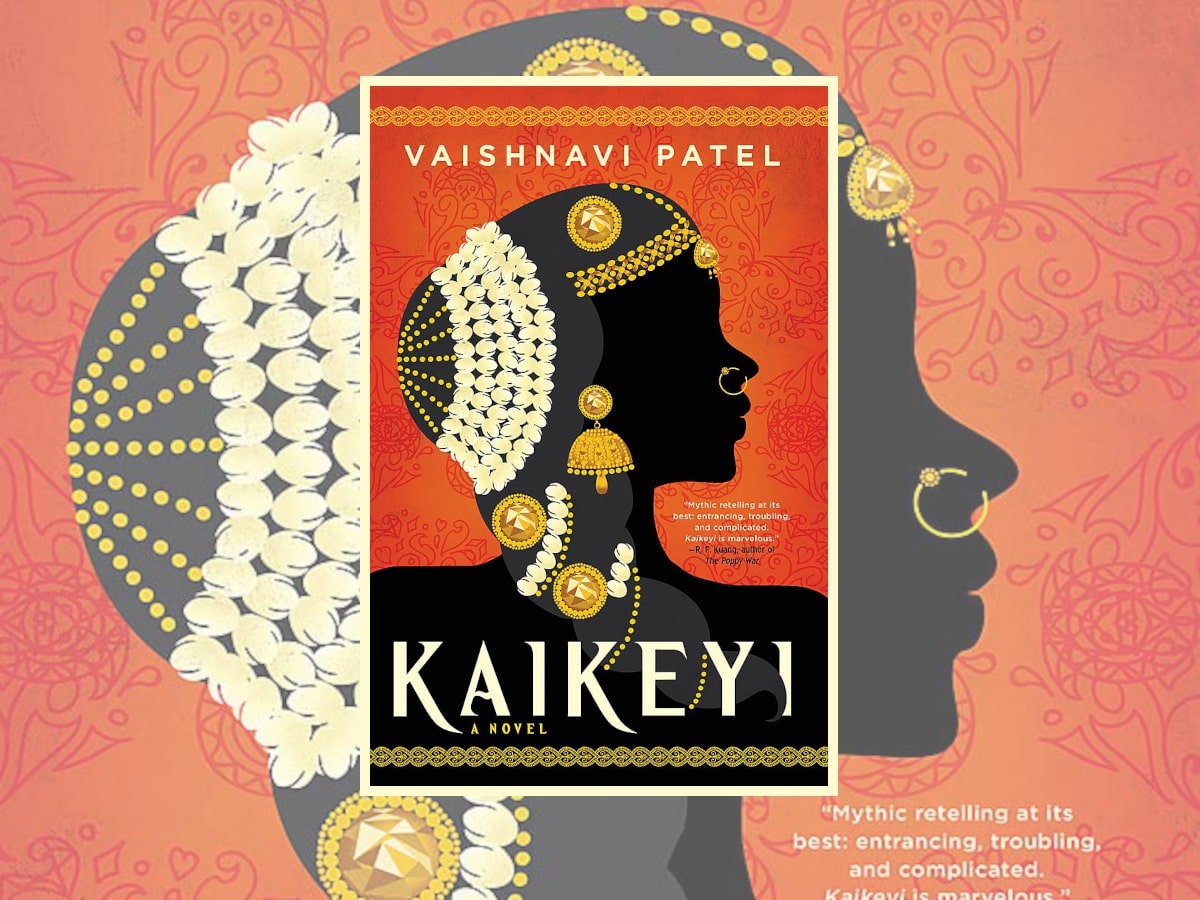One of my 2023 reading resolutions was to read more fantasy novels. The first title I read was R.F Kunag’s The Poppy War, whilst I waited for the highly acclaimed Babel to arrive in paperback. That was a great book, but I haven’t had time to review it. Next though, was a book that I think deserves highlighting as much as possible; Kaikeyi by Vaishnavi Patel.
What Is Kaikeyi by Vaishnavi Patel?
It is a reframing of the Ramayana, telling the story from the point of view of one of the mothers of Rama’s brothers. In classic interpretations of the tale, she is the stepmother responsible for Rama’s 10-year exile from Ayodhya. A villain of the piece, though, of course, not the villain of the piece. The reframing of famous epics, focusing on female protagonists has been a very popular publishing motif in recent years, and I was intrigued to see what Kaikeyi would bring.
I first encountered the Ramayana about 20 years ago when working as a bookseller. In the fantasy section, we had a book called Prince of Ayodhya by Ashok K. Banker, the first volume in a fantasy retelling of the Indian Epic. I didn’t actually pick up a copy then. It was only a few years later when I discovered some reprints with classic Indian art on the covers did I take the plunge. I was mesmerized by the entire six-volume series. (There are actually 8 now, but the last two never made it to print in the UK.)
Since then I’ve read another more classical retelling and one or two other modern presentations. When I stumbled across Kaikeyi just before Christmas last year, I knew I had to read it.
Why Read Kaikeyi?
I’m not sure Kaikeyi is what I would call a fantasy novel, any more than many of the epic Greek tales that have also been reworked. The story of the Ramayana is obliquely referred to. Kaikeyi opens during the titular character’s childhood, and deals with her formative years, marriage to Rama’s father, and then her role in his Kingdom and as a mother to his children.
Much of the time the novel feels like a tale of the conversations that went on in adjacent rooms to the main epic; an aspect I really liked, as it broadens our understanding of the original epic. Whilst there are elements of magic and the supernatural in the story, it feels more like a spiritual journey than a fantasy tale, whilst also managing to be a strong critic of male-dominated politics, religion, and decision-making.
I must confess, my recollection of the details of the Ramayana is insufficient to fully appreciate the full scope of Vaishnavi Patel’s tale. I’m a white middle-aged British male; it’s hard for me to put myself in the shoes of Kaykeyi, and neither is this a story that my cultural identity has been steeped in. Nevertheless, I thoroughly enjoyed it.
The reframing is deft. The depiction of Kaykeyi as an independent woman trying to do the best for herself and her family in difficult circumstances is poignant indeed, especially as the novel reaches its conclusion. Having some basic knowledge of the traditional version of the tale would probably help fully appreciate this version of events.
At its heart, The Ramayana is a classic tale of Good versus Evil, probably why it works so well as a fantasy story. Yet Kaykeyi goes much deeper than that. It’s an interesting look at coercion and the unchecked use of power. Powerful men, who can do what they like, don’t stop to think about whether alternative actions might be better. They are sure of their own infallibility with disastrous consequences for those around them and the people they rule.
Kaikeyi and Rama’s world is dominated by men, but how this plays out for each of them is very different. Kaikeyi challenges the prevailing power structures, whereas Rama offers the opportunity to reinforce them. There was only ever going to be one winner.
I don’t always like modern retellings of classic stories. There’s a thin line between retelling and pastiche and sometimes the reframing feels forced. An alternate tale to provoke a reaction, rather than to illuminate an alternative interpretation of the narrative. Kaikeyi does not feel like that. This is a subtle work, that pays homage to the text on which it’s based, but lays bare its faults, whilst also holding a lens on modern attitudes and assumptions. I very much enjoyed it. This is Vaishnavi Patel’s debut, I’m looking forward to seeing where she goes next.
If you’d like to pick up a copy of Keikeyi, you can do so here, in the US, and here, in the UK.
If you enjoyed this post, check out my other book reviews here.


